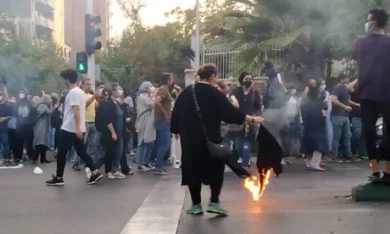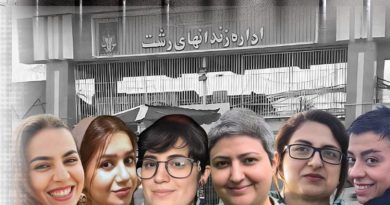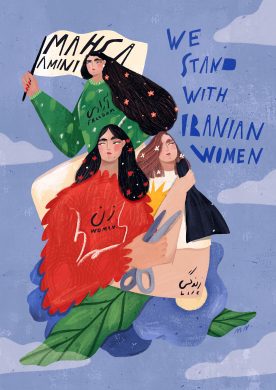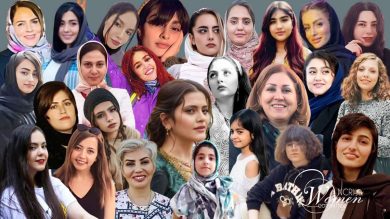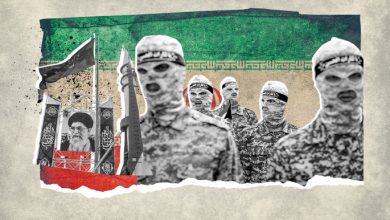International sanctions are a critical tool used to pressure the Islamic Revolutionary Guard Corps (IRGC) and the Iranian government. Over the years, the United States, European Union, and other countries have imposed economic and political restrictions targeting the IRGC’s financial networks, industries, and leadership to curb its military ambitions, nuclear program, and human rights violations. However, these sanctions have also had unintended consequences on ordinary Iranians, exacerbating economic hardships. This article explores how international sanctions affect both the IRGC’s operations and the lives of ordinary Iranian citizens, highlighting the benefits, limitations, and potential reforms needed to ensure their effectiveness.
1. Sanctions Aimed at Weakening the IRGC
A. Types of Sanctions
Sanctions targeting the IRGC fall into several categories:
1. Economic Sanctions
• Restrictions on trade, banking, and financial transactions related to IRGC-controlled industries.
• Prohibitions on foreign investment in oil, gas, and infrastructure sectors, many of which are dominated by the IRGC.
2. Asset Freezes and Travel Bans
• Freezing assets belonging to IRGC leaders and banning their international travel.
• Targeting front companies and affiliates that fund the IRGC’s operations.
3. Arms Embargoes
• Bans on the sale of weapons and military technology to Iran.
• Measures to disrupt the IRGC’s weapons smuggling to proxy militias in the Middle East.
B. Objectives of Sanctions
• Disrupt the IRGC’s funding for proxy wars and terrorism.
• Prevent Iran from developing nuclear weapons and ballistic missile programs.
• Pressure the Iranian government to respect human rights and engage in diplomatic negotiations.
2. How Sanctions Affect the IRGC
A. Financial Pressure on IRGC Operations
Sanctions have reduced the IRGC’s access to international financial systems, making it harder to fund its proxy networks and military activities. For example:
• The IRGC’s oil smuggling operations have been disrupted by sanctions enforcement on shipping and banking.
• Several front companies linked to the IRGC have been blacklisted, limiting their ability to launder money and conduct trade.
B. Adaptation Strategies
Despite the financial pressure, the IRGC has developed adaptation strategies to circumvent sanctions:
1. Smuggling and Black Markets
• The IRGC uses covert shipping routes and front companies to continue exporting oil and weapons.
2. Cryptocurrency Transactions
• The IRGC has increasingly turned to cryptocurrencies to bypass financial restrictions.
3. Increased Control Over Domestic Economy
• The IRGC has tightened its grip on key sectors such as construction, telecommunications, and natural resources, profiting from domestic contracts awarded by the Iranian government.
C. Military and Political Influence
Sanctions have not fully deterred the IRGC from pursuing its military ambitions in the region. The IRGC continues to support Hezbollah, Houthi rebels, and Shia militias in Iraq and Syria, though at a potentially reduced scale due to financial constraints.
3. Economic Impact on Ordinary Iranians
While sanctions are designed to target the IRGC and Iranian leadership, they have had severe consequences for the general population.
A. Inflation and Currency Devaluation
• The Iranian rial has lost much of its value due to sanctions on the banking and oil sectors.
• Inflation rates have skyrocketed, making basic goods such as food, medicine, and fuel increasingly unaffordable.
B. Unemployment and Economic Stagnation
• Many foreign businesses have pulled out of Iran due to sanctions, leading to job losses and reduced investment.
• Youth unemployment is particularly high, contributing to social unrest and emigration among skilled workers.
C. Limited Access to Medicine and Medical Equipment
Although humanitarian exemptions allow for the import of medical supplies, banking restrictions have created obstacles in purchasing and delivering life-saving drugs.
4. Social and Political Consequences of Sanctions
A. Increased Public Discontent
Sanctions have fueled anger and frustration among ordinary Iranians, who often blame both the regime and foreign powers for their suffering.
• Protests such as the 2019 fuel price protests were driven by economic hardship exacerbated by sanctions.
• Some Iranians view sanctions as collective punishment, reducing trust in Western governments.
B. The Regime’s Use of Sanctions for Propaganda
The IRGC and Iranian government use sanctions as a propaganda tool, blaming economic hardship on foreign interference rather than domestic corruption and mismanagement.
• State media frequently portrays sanctions as an act of war against Iran.
• The regime exploits this narrative to justify repression and silence dissent.
5. Debates Over the Effectiveness of Sanctions
A. Arguments in Favor of Sanctions
• Proponents argue that sanctions have weakened the IRGC’s resources and forced Iran to engage in negotiations, such as the 2015 Iran Nuclear Deal (JCPOA).
• Sanctions serve as a non-military tool to pressure authoritarian regimes without resorting to war.
B. Criticism of Sanctions
• Critics contend that sanctions have hurt ordinary citizens more than the IRGC, undermining civil society and pro-democracy movements.
• Some experts argue for targeted sanctions that focus exclusively on regime officials and military entities to reduce collateral damage.
6. Recommendations for Reforming Sanctions Policy
A. Strengthening Humanitarian Exemptions
• Improve financial channels to facilitate the import of food, medicine, and medical equipment.
• Collaborate with international organizations to ensure that humanitarian aid reaches those in need.
B. Expanding Targeted Sanctions
• Focus sanctions on high-ranking IRGC officials, business affiliates, and key military operations.
• Avoid broad-based measures that disproportionately impact the civilian economy.
C. Supporting Civil Society
• Provide funding and resources for independent media, human rights organizations, and digital security tools to empower activists.
• Increase academic and cultural exchanges to foster greater people-to-people engagement.
7. The Path Forward
Sanctions remain a crucial tool in pressuring the IRGC and Iranian leadership, but their long-term effectiveness depends on policy adjustments that minimize harm to ordinary citizens. By balancing pressure with humanitarian support, the international community can better support Iranian activists and civil society in their fight for freedom and justice.
Conclusion
International sanctions have significantly impacted both the IRGC’s operations and Iran’s civilian population. While sanctions have constrained the IRGC’s financial networks, they have also worsened economic hardships for millions of Iranians. To achieve lasting change, a revised approach is needed—one that combines targeted measures with humanitarian support and international solidarity.
Join Our Newsletter!
Stay informed with the latest updates, news, and ways to take action in the fight for justice and global security. Sign up now to get updates delivered straight to your inbox!

